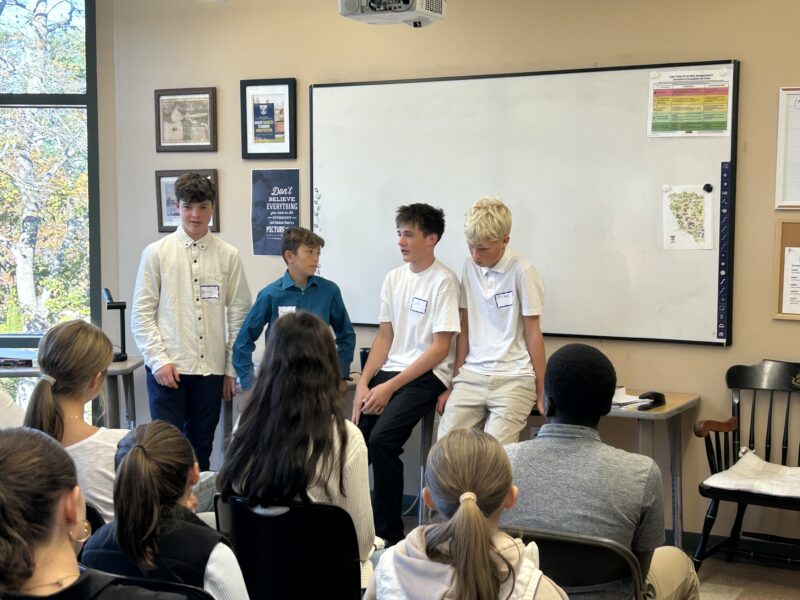
If you’ve ever tried to sell anything, you’ve probably heard the maxim: “Sell the sizzle, not the steak.”
We at the Hyde Institute believe so deeply in the idea behind the Discovery Process that we are sometimes guilty of short-selling its outcomes. We also can fall into the trap of being a bit too honest about how hard it is to attain them.
OK, then, what’s the pay off?!?
First, there are five benefits that participating schools consistently experience:
- Students feel safe and cared for with a sense of connection to school and one another;
- Better coping skills in day-to-day interactions with both peers and adults;
- Synergistic rapport between younger and older students;
- Advancements in learning due to positive learning attitudes and sharper concentration
- Enriched teachers due to the impact of HDP in their own lives.

Every school wants these things. Any school that enjoys them does so only because it understands that Our Reach Must Exceed Our Grasp. Great schools reach for more than what they want and get visited by a by-product in the form of safety, respect, and responsibility. Here are five premises at the heart of how the Discovery Process can help any school intent on extending that reach.
Immunity to Anxiety
In her landmark 2021 book The Awakened Brain, Columbia University psychologist Lisa Miller refers to what she calls the “questing brain,” a mindset that regards life as a journey of conscience and purpose. She postulates that the concept of immunity, one currently front-and-center due to the Pandemic, is not limited to physical illnesses. Her extensive research demonstrates that the questing brain can also assist immunity to anxiety and depression. She argues that it is never too early for parents or teachers to help facilitate this journey for children. Whereas many SEL programs might claim to curb anxiety after it surfaces, an effective HDP program can help counter it before it takes root.
Safety is necessary but not sufficient
One of the first things we did when we began developing this program in 2019 was a competitive scan of SEL providers. This revealed a prevalent anti-bullying emphasis and a preoccupation with safety. To be sure, the Discovery Process believes that safety is critical. We also believe that safety represents a low bar. Schools shouldn’t have to brag about it. It ought to be an assumed expectation.
Inspiration
Even if an SEL program manages to make bullying absent, it does not necessarily follow that an inspiring esprit de corps will be present. Rather than start with what to do about bullying, the Discovery Process asks (and answers) the more holistic question: What to do about inspiration? Post-Pandemic, a focus on anti-anxiety measures have come to accompany safety as common emphases of SEL programs. The best way to minimize anxiety is to meet it at its source with purpose and inspiration.
Everybody Does Everything… and Learns More & Better
Angela Duckworth, CEO of Character Lab, writes of the ever-present “trade-off that parents and educators negotiate between sampling and specialization, between exploring new stuff you know nothing about and getting really good at what is already familiar.” Although specialization may currently be the order of the day in our classrooms and on our playing fields, we concur with Duckworth’s assessment: “Early in life, when time is on your side but you know almost nothing, it’s better to favor exploration.”
The Best Possible You/Us
Finally, whereas many contemporary SEL programs tend to be focused on anti-bullying or DEI agendas, the Discovery Process differentiates itself with its primary focus on unique potential and helping kids become the best possible versions of themselves. While the Hyde Institute supports the efforts of any SEL program aiming to eliminate bullying and integrate the aims of DEI, we also proudly note that we began doing this decades before the terms SEL, anti-bullying, and DEI appeared on the educational landscape.
There you go, 5 benefits and 5 premises. Sometimes the roots are bitter, but the fruits are sweet!
Onward, Malcolm


